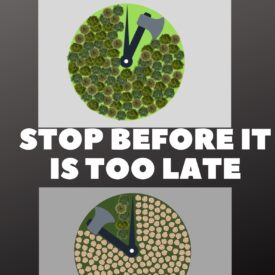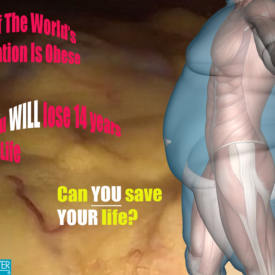Highlight of the Round
Jarvis Banfield, Year 12
Assembly Sports Report – Highlight of the Round – 1 – Seconds Basketball – Buzzer Beater to Win
There were many great moments in this fixture, but the one that’s been awarded The Highlight of the Round this week goes to the Seconds Basketball Team. The game was played in the Scotch gym and with only 10 seconds left on the clock and Scotch trailing by two points, it required a magical moment for Scotch to come out on top.
Josh Reid had the ball in his hands; he quickly flicked it over to Hunter Bergeson who grabbed the ball and dribbled it up the court. Hunter realised that the only way to win was to hit a three-pointer. He stopped, two steps off the three-point line, it was now or never. He took the game deciding three-pointer jump shot and the ball sailed through the air. The crowd went silent, and the only sound that filled the gym was – swish – the ball went through for a goal. Scotch secured the win by one point. It truly was a magical moment.
Assembly Sports Report – Highlight of the Round – 2 – First Water Polo – Clutch Goal to Win
Thanks a lot to everyone who put in entries for the highlight of the round; it was very hard to choose.
But, this week, the Highlight of the Round has been awarded to the Scotch 1st Water Polo Team.
Scotch flew to a four-goal lead in the first half, but then they lost it. With forty seconds left in the final quarter, the scores were level, 10 to 10. A timeout was called, as both teams tried to quickly develop the perfect passage of play to score a goal in the next forty seconds.
Wesley had the ball and maintained possession, waiting for a scoring opportunity to present itself, but it wasn’t happening with Scotch’s brick wall of defence.
Then, defensive superstar Rory White stole the ball. Wesley attackers swarmed towards him, so he passed the ball to Will Marshall. Will proceeded to swim up the pool, turn a few Wesley players and pass the ball. The pass soared through the air, seemingly towards open water.
But then out of nowhere Fraser Davis launched out of the water and landed on the ball. “It was like a hump-back whale landing into the ocean,” team-mate Jake Marshall described. He caught the ball and steadied, the Wesley goalie was staring him down, anticipating his every move, but Fraser threw an absolute rocket. The ball rifled past the open arms of the goalie into the back of the net with so much power that the net almost broke.
The goal was scored, and Scotch were leading 11-10 with seven seconds left in the final quarter. The Scotch First Water Polo Team came out victorious.
Another couple of quick highlights in the 1st Cricket this week that I couldn’t leave out. An honourable mention must go to Year 9 Nick Langsford, who debuted in the 1st team. He managed to get a wicket on his first bowl, finishing the game with four wickets in total. Another mention to Ned Gaffey, who hit a six so big that it hit the sight screen.
Great job to all.
Assembly Sports Report – Highlight of the Round – 3 – First Tennis – Tweener Shot
The highlight of the round last week against Hale goes to the 1st Tennis Team.
It was a warm day on the Hale hard courts, as the Scotch 1st Tennis looked to continue their undefeated season.
Scotch player, Wesley Huang stepped out on to the court to play the number 8 singles, a match that would swing the fixture either way. It was the matchup everyone had been waiting for: Wesley Huang, the Year 12 veteran and singles specialist, against the Year 9 Hale prodigy. This was box office tennis and, man, did it live up to its expectations.
Wes took an early lead, comfortably taking the first set. But he didn’t get too comfortable, as he knew a strong start to the final set was vital.
In the second point of the last set, there was an opportunity for Wes to finish the point with a clinical volley. He took the chance and flew towards the net as if there was no tomorrow, looking to hit the winner. But surprisingly to Wes, the Hale player saw it coming. He lobbed the ball over Wes’s head with a shot that seemed to levitate in the air, only until it landed just one centimetre inside the baseline.
Wes reacted quickly. He sprinted back, but by the time he made it to the ball he realised there was no time for him to turn around and hit a forehand return to his opponent. There was only one way for Wes to return the shot. With his back facing towards his opponent, he opened his glorious legs, waited for the ball to drop to knee height, and boom. Wes hit the ball between his legs (aka a tweener); he hit it with so much power and precision that the bullet of a shot flew right past his Hale opponent and landed in, leaving the opposition with zero chance of getting it back.
The crowd erupted, and even manager Mr Bradley approved of Wes’s brilliance with a few claps. Captain and Vice-Captain of Tennis Ryan Mconkey and Will Hudson labelled the shot as, “the greatest to ever grace the PSA Tennis competition” and likened it to prime Roger Federer.
Thanks so much to Will Hudson who took the time to submit this inspirational highlight of the round. It was great.
Assembly Sports Report – Highlight of the Round – 4 – First Cricket – 100 runs (century)
Alright, let’s get to the Highlight of the Round.
The Highlight of the Round last week goes to Ned Gaffey in the 1st Cricket Team against Aquinas.
After winning the toss and choosing to bat, Scotch looked set for a big first innings score. However, a top order batting collapse resulted in Scotch being 5 wickets down for 85 runs after 40 overs. For those of you who aren’t too familiar with cricket scores, this score meant that the team was under pressure and the remaining batsmen needed to perform.
Coming into bat at Number 7, star all-rounder Ned Gaffey looked very concerned when he arrived at the crease as it became clear as day that the Aquinas bowlers were bowling exceptionally well. The stage did not appear set for a Gaffey special.
However, to everyone’s surprise Ned survived the day’s play with a quickfire 45 not out, accompanied by Hayden Henschel on 53.
Ned resumed the second day of the match with bat still in hand, and with his trademark unorthodox style he sent every ball flying as if they had jet packs attached to them. Following a similarly stellar innings in a recent 3-day game vs Aquinas, Ned was given the very appropriate nickname “universe boss.”
One of the Aquinas bowlers even commented on how difficult Ned was to bowl to when he said, “I bowled him three different balls, and all three managed to go to the cow corner boundary.” For those of you who don’t know what cow corner boundary means, it’s a fielding position which gets its name from being positioned in a corner of the field which was safe for cows to graze on because very few batsmen would hit the ball there.
Finally, after nearly getting out on 97, Ned hit the shot everyone had been waiting for, an excellent cut shot that raced past the point for four runs, making his total to 101. Ned made it to triple figures. The big 100. A century. Something many cricketers only dream of, and he made it facing only 130 balls.
Ned finished the innings with an incredibly well made 101.
Perhaps the best part is that the name Ned Gaffey will now be immortalized on Scotch’s mycricket for Darlot centurions, next to the likes of Alex Chew and Australian test cricketer Cameron Green.
Congratulations on a wonderful achievement Ned, and thanks so much to Richard Walton, another asset in the 1st Cricket Team, who submitted this awesome highlight of the round.
Assembly Sports Report – Highlight of the Round – 5 – Seconds Water Polo and First Basketball
The highlight of the round last week against Trinity goes to the Seconds Water Polo Team.
There were two minutes to play in the final quarter. It had been a very tight game thus far, with the Scotch currently ahead by only two goals.
After a foul on Trinity, it was a 1 on 1, five-metre showdown between goalie Taj Massey and Trinity’s best shooter. Picture this. The whistle blows, and the Trinity player picks up the ball and shoots it towards the goals in one lightning-fast motion. Taj reacts quickly, he propels into the air and, like a giant octopus, he reaches out one long, lanky arm to smack away the shot!
It bounces away, back into the field of play. The fight was on as everyone scrambled to get their hands on the ball, but Trinity managed to get there first.
The Trinity player takes the opportunity to score and throws another great shot. It sails towards the top corner of the goals, but, out of nowhere, Taj’s long arm again extends beyond what should be possible and he absolutely obliterates the ball. Two shots blocked within 10 second; Taj is on fire!
With thirty seconds on the clock all players from both teams are in a frenzy within metres of the Trinity goal. The Trinity team rapidly fire four more shots, but the great wall of Taj rises out of the pool and with his octopus arms saves every one of them! Finally, the whistle blows and it’s game over. Taj locked down the game stopping six goals in around thirty seconds, and secured Scotch the win, 7 to 5. Good job boys!
Thanks to Seconds Water Polo player, Ollie Barret for this submission.
Another spectacular highlight that I couldn’t miss out, occurred in the First Basketball Team against Trinity.
The team got off to a poor start, with Trinity excelling ahead 13 to 5 in the first five minutes, leaving Scotch trying to claw its way back for the rest of the game. With five minutes left in the game, Scotch was down 14 points, and coach CJ called a time-out. Most people in the team felt like they needed a miracle to win from this far down, but not Max Della Franca.
After the time-out Della starts going crazy and manages to quickly nail two 3-pointers and two free throws, bringing Scotch back in the game making them now only six points down. After a few more clutch buckets from Scotch, the score is 51 to 51; there are twenty seconds left, the ball is in Tim Imison’s hands, what will he do?
Take a look at the screen to see what happens.
Tim Imison flicked the ball to Tom Lynch, Tom pulled up from three and swish, the ball went in for three points. The final ten seconds counted down and Scotch won the game 54-51. What a moment.
A couple quick special mentions.
In the First Cricket, a huge congratulations to Ed Allan, who amazingly made 108 runs off only 96 balls, hitting 11 fours and an outstanding 5 sixes. That is an absolutely incredible achievement! Good job to Rory King as well who got five wickets.
And finally, congrats to the 4ths Cricket Team who got their first win for the season after being bowled out for 38 the week before. Special mentions to Jim Allan who made 50, and to George Bath and Jasper Blunt who both took screamers.
Assembly Sports Report – Highlight of the Round – 6 – Head of the River Win
The highlight of the round goes to the Scotch First 8 Rowing Team in the 2-kilometre race of the Head of the River.
You all know the result: First. Well done boys; that is unbelievable, and the school is very proud. But what you don’t know is what happened behind the scenes.
The starting marshals called the crews to the blocks; Cox, Terry Zhou positioned his boat, his line slightly crooked.
The race began and Sam Dyball strategically forgot to take the second stroke of the race, which ended up actually correcting their line to be, as the commentator described, “in the dead middle of the lane.”
250 metres into the race, Scotch pulled away to an early lead by half a boat length. The race was playing into their hands, as Christchurch and Guilford were desperately trying to hold onto them.
The halfway mark was coming up fast with Scotch being a full boat length ahead.
The time came where Cox Terry, had to make the toughest decision of his rowing career. With millions of possible scenarios going through his mind, there’s only one that sees Scotch come out on top. The famous Fly and Die strategy.
Flying and dying is a race plan few can bear to stomach. The process requires forgetting about the remaining segments of the race and going absolutely all out for around 300 metres, hoping that you can get enough of a lead to hold off the other crews.
The Scotch team knew what they had to do, they knew the pain would be next level, but they knew that if they wanted to win then they had to just dig deep and do it.
At the 1-kilometre mark, Ben Scott signaled to the crew that he was picking up the pace and with a massive display of courage, the boys went with him. It looked like their boat just grew a 400 horse-power motor, as Scotch took off from the rest of the field, extending their lead farther and farther to one and a half boat’s lengths.
Finally, they approached the 1300-metre mark, and the great surge was over. Scotch was two boat lengths in front of Christchurch who were coming second. The pain the crew was experiencing was like nothing before. The hot air dried out the last bit of moisture in the boys’ mouths, their muscles screaming and begging for it to be over, and the lactic acid produced by the boys could have filled an entire swimming pool. But no one gave up, they all knew that they were in this together.
The crowd of hundreds on the Champion Lakes shoreline and all those watching the live stream were screaming. With a minute left of the Head of the River, Scotch continued to pull away from the rest of the crews.
At a time of 6 minutes and 22 seconds, Scotch crossed the line first with a dominant two boat length lead in what was supposed to be the closest Head of the River race in decades. And for the second time since 1991, Scotch College came out victorious in the Head of the River.
Take a look at the screen to see a quick snippet from the race, coming from the cox, Terry Zhou’s GoPro.
From watching this video, it really makes you feel like you are in the race, and you can see the tactics, determination, and effort that comes with rowing. I love Terry’s final comment, “For the boat shed, for the school, for each other!” It shows what an incredible team effort it was, and the reward that comes with working together and excelling as one.
Special mention to all coaches, parents and members of the boat club who made the season’s result possible.
Thanks a lot to Terry Zhou, Ben Scott and Lachy Bowen for submitting this highlight of the round.












